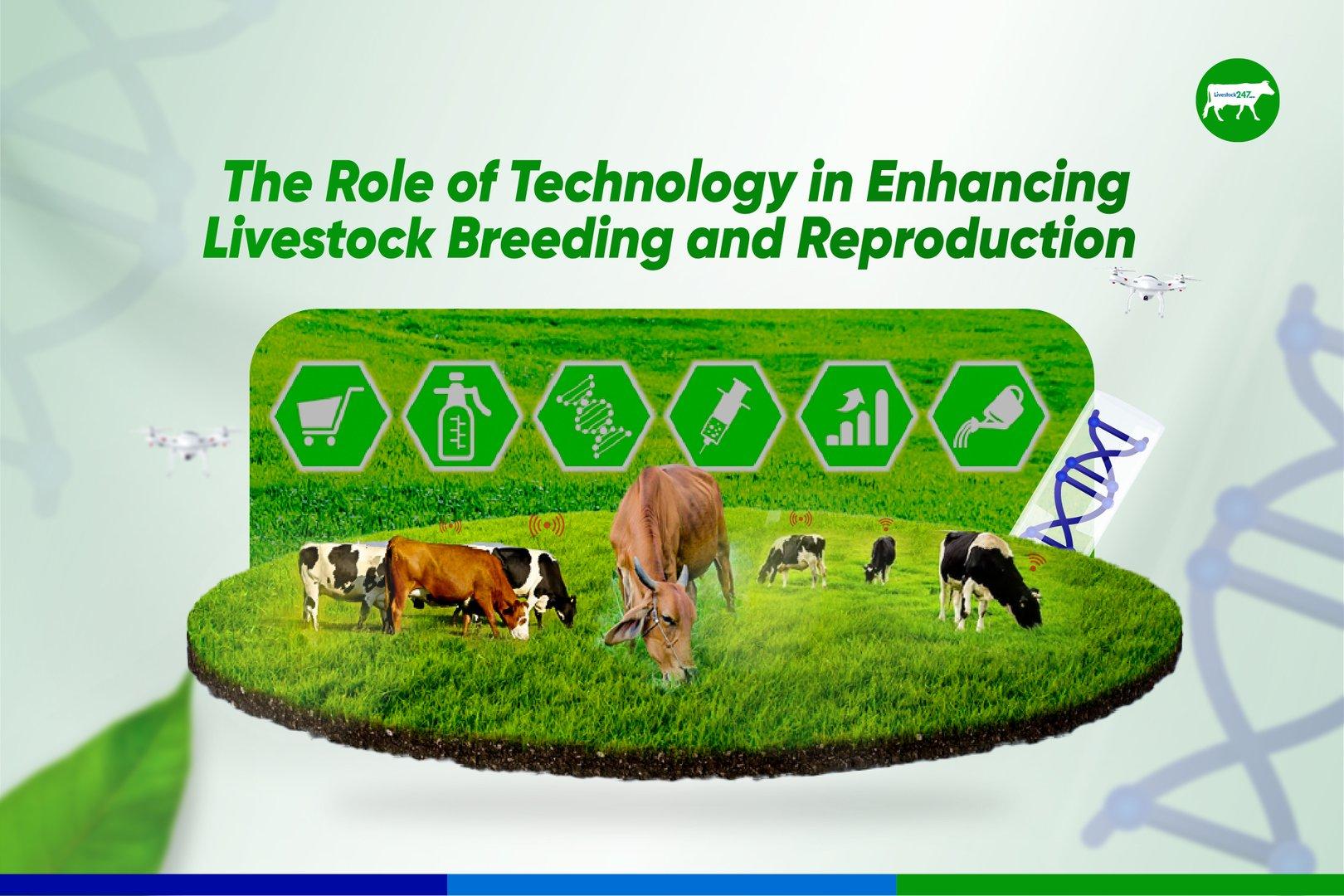Livestock247 - The Role of Technology in Enhancing Livestock Breeding and Reproduction
Technological advancements have transformed the management of livestock breeding and reproduction. In recent years, the advent of new technologies has enabled farmers and veterinarians to improve live
 Technological advancements have transformed the management of livestock breeding and reproduction. In recent years, the advent of new technologies has enabled farmers and veterinarians to improve livestock production efficiency while simultaneously lowering production costs. Because animal health and production are critical components in the agricultural sector, livestock health has a direct impact on productivity and, as a result, farmer revenue. In recent years, technological advancements have aided animal health and production practice.
Technological advancements have transformed the management of livestock breeding and reproduction. In recent years, the advent of new technologies has enabled farmers and veterinarians to improve livestock production efficiency while simultaneously lowering production costs. Because animal health and production are critical components in the agricultural sector, livestock health has a direct impact on productivity and, as a result, farmer revenue. In recent years, technological advancements have aided animal health and production practice.
At Livestock247, we offer tremendous opportunities for agricultural development, poverty reduction, food security, and human nutrition. Many countries' rising demand for animal products is met by large-scale livestock farming and food chains. Food safety and public health are dependent on animal production that is efficient, healthy, and safe. That is why we leverage technology to mainstream Africa's livestock business while mitigating the spread of animal to human diseases, one of which is our online platform to sensitize and enlighten farmers and the people about zoonotic diseases and how to mitigate them.
One example of technological innovation is the use of artificial insemination (AI). Livestock247's Animal Identification and Management systems is an example of that. The use of micro-chip for traceability and fit-for-slaughtering purpose. AI also entails using sperm from a single animal to fertilize several females. AI has the potential to dramatically enhance the number of offspring produced while also delivering a more homogenous genetic makeup of the herd. Furthermore, AI has the potential to minimize the labor associated with traditional breeding procedures.
Finally, technology can be utilized to check the health of cattle. The use of drug delivery systems such as micro/nano systems; disease management through the use of vaccines which our various Veterinary Doctors are doing in each of their stations. Electronic tags and sensors can be used to track the health of individual animals in a herd and notify farmers if there are any changes in behavior or health. This is especially crucial in the case of diseases that are difficult to identify, such as cancer.
Overall, technology has transformed the management of livestock breeding and reproduction. Farmers and veterinarians can enhance production efficiency and lower production costs by using artificial insemination, genetic testing, and monitoring technologies.
We are Livestock247, and we are mitigating the spread of zoonotic disease while mainstreaming Africa's livestock business through technology. On the journey to being a leading source of healthy, traceable livestock, Livestock247 aspires to become a trusted partner for farmers, meat processors, and consumers by fostering transparency, responsibility, and innovation in the livestock business as well as helping smallholder farmers in rural areas in Africa.
Deborah Dairo
Deborah Dairo is the content strategist for Livestock247
No comments yet. Login to start a new discussion Start a new discussion